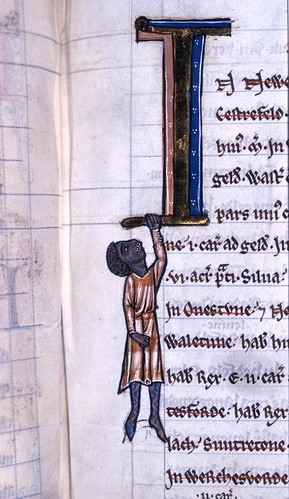In 1086, the Domesday Book added a new level of organization and control to the governing structures of Medieval England. It offers a rare glimpse of society at a time when books were laboriously crafted by hand. Originally in the hands of a select few, the written, then printed, typed and now web-based words are in the hands of the almost everyone. When I look at this illumination, it reminds me that perhaps not everyone benefits from these changes. There will be benefits and costs and as Postman states out these changes in our modes of communicating have a far-reaching “ecological” impact on our society as a whole.
I’m a Grade 4/5 teacher living on Vancouver island. I studied the Middle Ages at UofT and later received a teaching degree from UBC. I find the transition of methods of communication fascinating and how it plays out in my classroom and my life, even more so.




Absolutely. And will history repeat itself with a select few able to reap most of the rewards?
Chris, certainly as child poverty and homelessness is on the rise in British Columbia, I’d have to say, yes many are being disenfranchised even in Canada. I can only imagine the challenges for people in less developed countries.